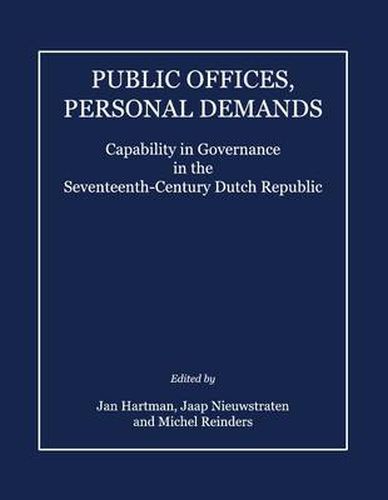Readings Newsletter
Become a Readings Member to make your shopping experience even easier.
Sign in or sign up for free!
You’re not far away from qualifying for FREE standard shipping within Australia
You’ve qualified for FREE standard shipping within Australia
The cart is loading…






Public Offices, Personal Demands presents a novel perspective on European politics in the seventeenth-century. Its focus lies on the Dutch Republic, that surprising anomaly, often described as a miracle or enigma, admired by many during this age. This collection of essays explores one of the most fundamental questions of seventeenth-century governance: what makes a person capable for office? Contemporary viewpoints are discussed by a range of scholars from different historical disciplines. As this volume shows, debates about capability and office-holding were by no means restricted to political theorists. Scientists, citizens and merchants all discussed these matters in a similar vein. Nor was this heated discussion about who was fit govern a typically Dutch phenomenon. Because of its multifaceted and international approach, this book will appeal to both scholars and students in the fields of cultural and social history, the history of political thought, the history of early modern politics, and the history of science.
$9.00 standard shipping within Australia
FREE standard shipping within Australia for orders over $100.00
Express & International shipping calculated at checkout
Public Offices, Personal Demands presents a novel perspective on European politics in the seventeenth-century. Its focus lies on the Dutch Republic, that surprising anomaly, often described as a miracle or enigma, admired by many during this age. This collection of essays explores one of the most fundamental questions of seventeenth-century governance: what makes a person capable for office? Contemporary viewpoints are discussed by a range of scholars from different historical disciplines. As this volume shows, debates about capability and office-holding were by no means restricted to political theorists. Scientists, citizens and merchants all discussed these matters in a similar vein. Nor was this heated discussion about who was fit govern a typically Dutch phenomenon. Because of its multifaceted and international approach, this book will appeal to both scholars and students in the fields of cultural and social history, the history of political thought, the history of early modern politics, and the history of science.